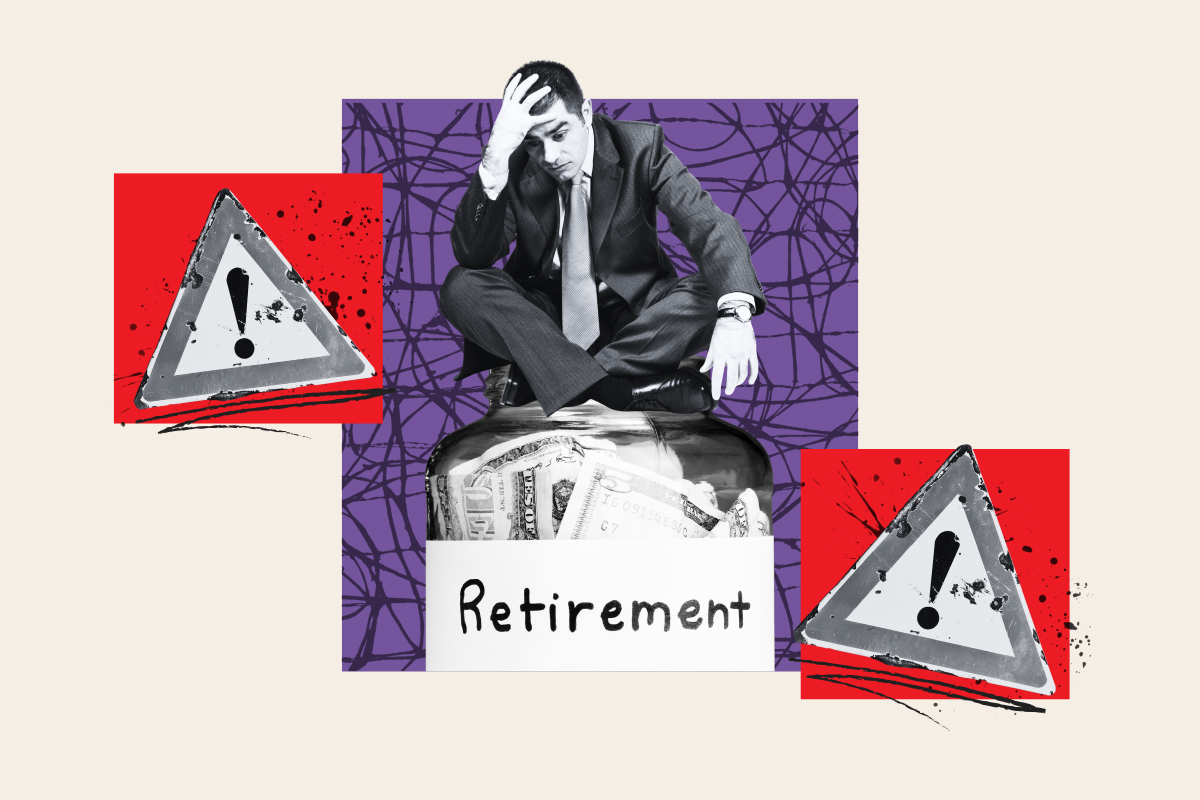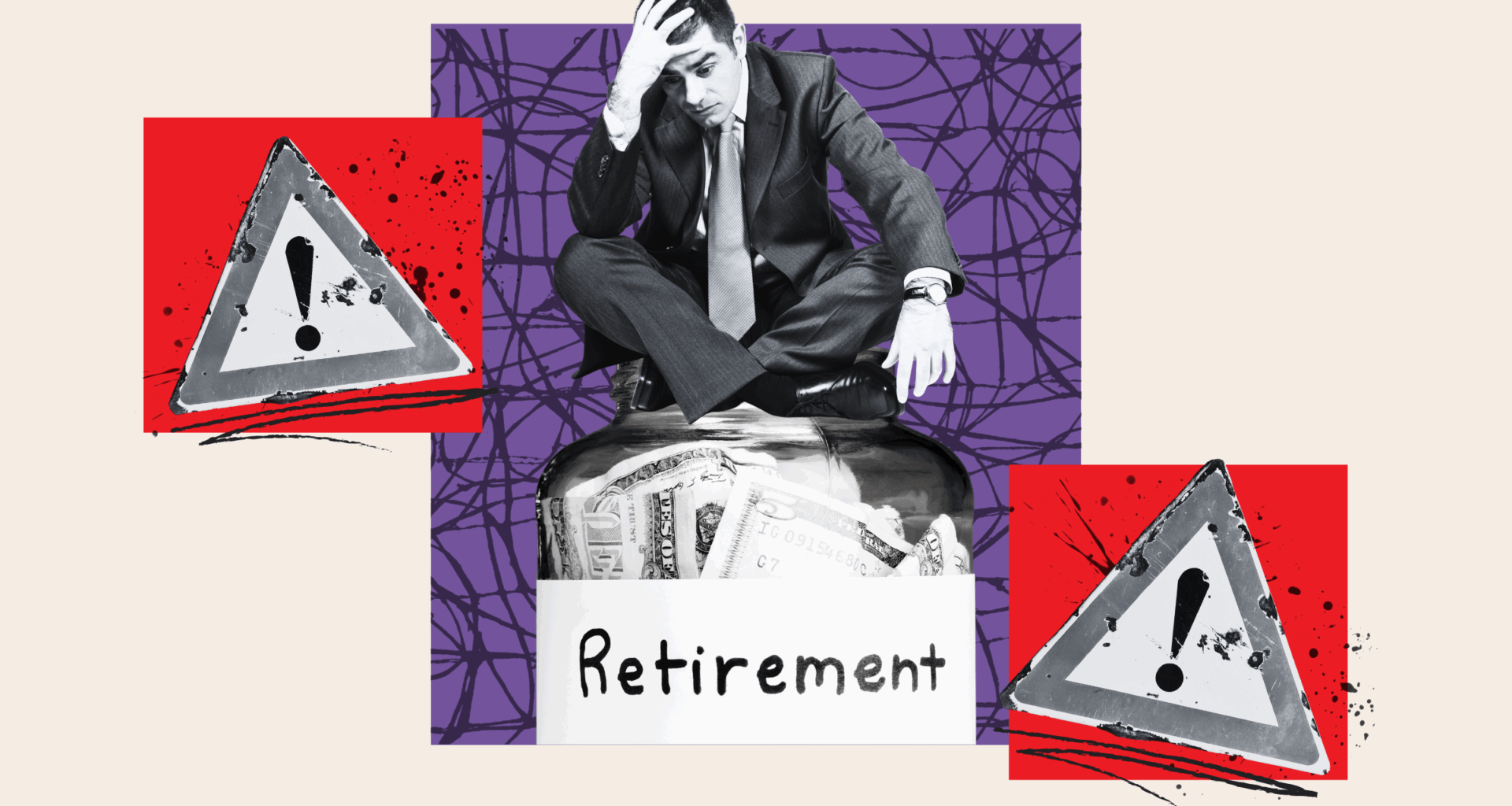Five key fears are shaping how Americans think about retirement, according to new research.
A WalletHub survey of 200 people paints a grim picture of attitudes toward retirement, finding that half of Americans don’t believe it’s realistic for the average person to expect to retire comfortably. Nearly two in five said they feel anxious when thinking about retirement, while more than a quarter admitted they have no retirement plan at all. Perhaps most striking, 43 percent expect to work until they die.
When asked what most threatens their ability to retire, Americans pointed to a mix of self-doubt and outside forces—ranging from their own financial decisions to concerns about the stock market, Social Security, the job market and even federal debt.
Financial Decisions
The largest share—31 percent—pointed to their own financial decisions as the biggest threat to a financially healthy retirement. That response may sound discouraging, but Scott Hefty, a certified financial planner and founding partner at Serae Wealth, sees it differently.
“The survey answers don’t surprise me. What I do find encouraging is how the top answer was ‘my financial decisions,'” he told Newsweek. “It tells me people feel agency in their financial outcomes. People can often feel their financial future is out of their control and in the hands of Washington or Wall Street. It’s powerful that people feel their choices and actions matter.”
Still, missteps can be costly. Hefty highlighted two common problems: under-saving early in life and “lifestyle creep,” when spending expands as income rises.
“The earliest saved dollars are the most impactful, and while early on you may not have a ton of extra money to set aside and invest, you have greater time for those funds to compound and magnify,” he said.
Waiting too long to start saving, he added, makes that task harder.
Dan Murphy, founding partner and chief investment officer at Great Lakes Private Wealth, has seen another mistake play out repeatedly: withdrawing money early from retirement accounts.
“Too often, people take money out to help children, relatives or friends. That money is almost never repaid, and it permanently reduces the retirement nest egg,” he told Newsweek.

Five key fears are shaping how Americans think about retirement, according to new research.
Five key fears are shaping how Americans think about retirement, according to new research.
Photo-illustration by Newsweek/Canva
Stock Market
Tied for second place at 23 percent was the stock market. The volatility of financial markets can wipe out years of careful planning.
“I commonly see families who are financially set for retirement as far as savings but are in an extremely vulnerable position if a severe recession were to come,” Hefty said.
The financial crisis of 2008, he recalled, dashed retirement dreams for many.
“It led to many hard conversations, budget cuts and people being forced to go back to work. Being unprepared for inevitable down cycles in the market can turn a great conversation into a financial tragedy,” Hefty said.
Social Security
Social Security benefits were also identified as a major concern, cited by 23 percent of respondents. There have been persistent fears about the program’s sustainability recently, with an automatic benefit cut due in less than ten years if funding for it is not shored up by Congress.
But Hefty believes some of the worry may be misplaced.
“I often have clients express concerns about receiving Social Security benefits, when for the vast majority we anticipate they will receive those benefits as promised,” he said.
While changes could come, such as higher retirement ages or reduced benefits for younger workers, Hefty said: “It’s extremely unlikely that Social Security would ever go away in its entirety.”
Job Market
The job market ranked fourth, with 16 percent citing it as the greatest threat to their retirement. While job stability can ebb and flow over the course of a person’s career, for Hefty, the biggest danger comes later in life, when time to recover is limited.
“A job layoff late in one’s career can be financially devastating, especially if they were banking on those later years to catch up on retirement savings,” he said. “It can be extremely difficult at that stage to find a job of equal or higher pay and being forced to take a step back in income can have severe downstream effects.”
Government Debt
Federal government debt ranked lowest among the five retirement fears, cited by just 8 percent of survey respondents. Despite ongoing debates about long-term fiscal sustainability, experts say individuals have more influence over their own finances than over the national budget.
“Of these five threats, government debt is the one people worry about the least for a reason,” Hefty said. “While there are long-term risks in Washington’s fiscal policies, the factors you can control—how much you save, how consistently you invest, and how you manage debt—have a far greater impact on your retirement security.”
Murphy echoed this urging savers to concentrate on consistent, disciplined contributions rather than fretting over macroeconomic issues.
“The real risk is not having the discipline to save from every paycheck, consistently, over time,” he said. “You can’t control Washington or the market, but you can control your own savings habits—and that’s what will ultimately determine your financial security in retirement.”
Course Corrections
For those who feel they have already fallen behind, both Hefty and Murphy stress that it’s never too late to start preparing for retirement.
“If you are behind financially the best thing you can do is sacrifice and save as much as possible, as soon as possible,” Hefty said.
He cautions against the defeatist mindset that it’s already too late to bother.
“Maximizing the time you have left by taking those steps as early as possible becomes crucial,” he said.
Raises or increases in income, he added, should go directly toward savings or paying down debt, not fueling additional spending. Otherwise, lifestyle creep creates a situation that is “non-sustainable” and inevitably painful to correct later on.
As Murphy put it: “Save more and save now. You either pay now or pay later.”
